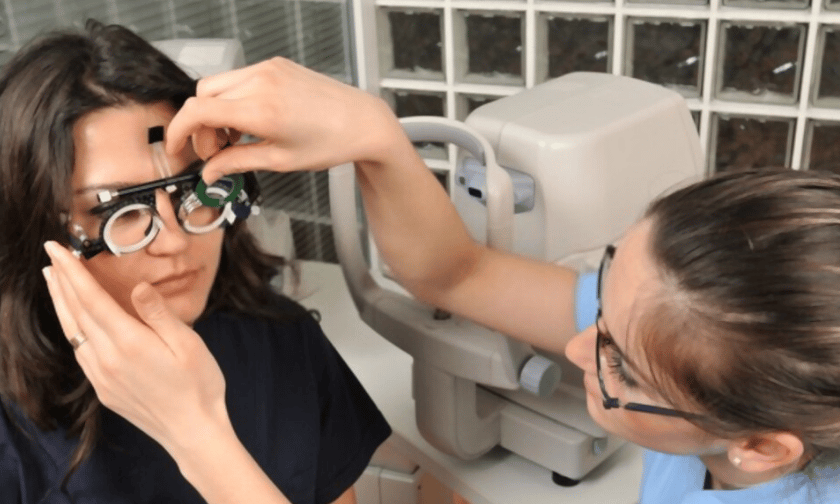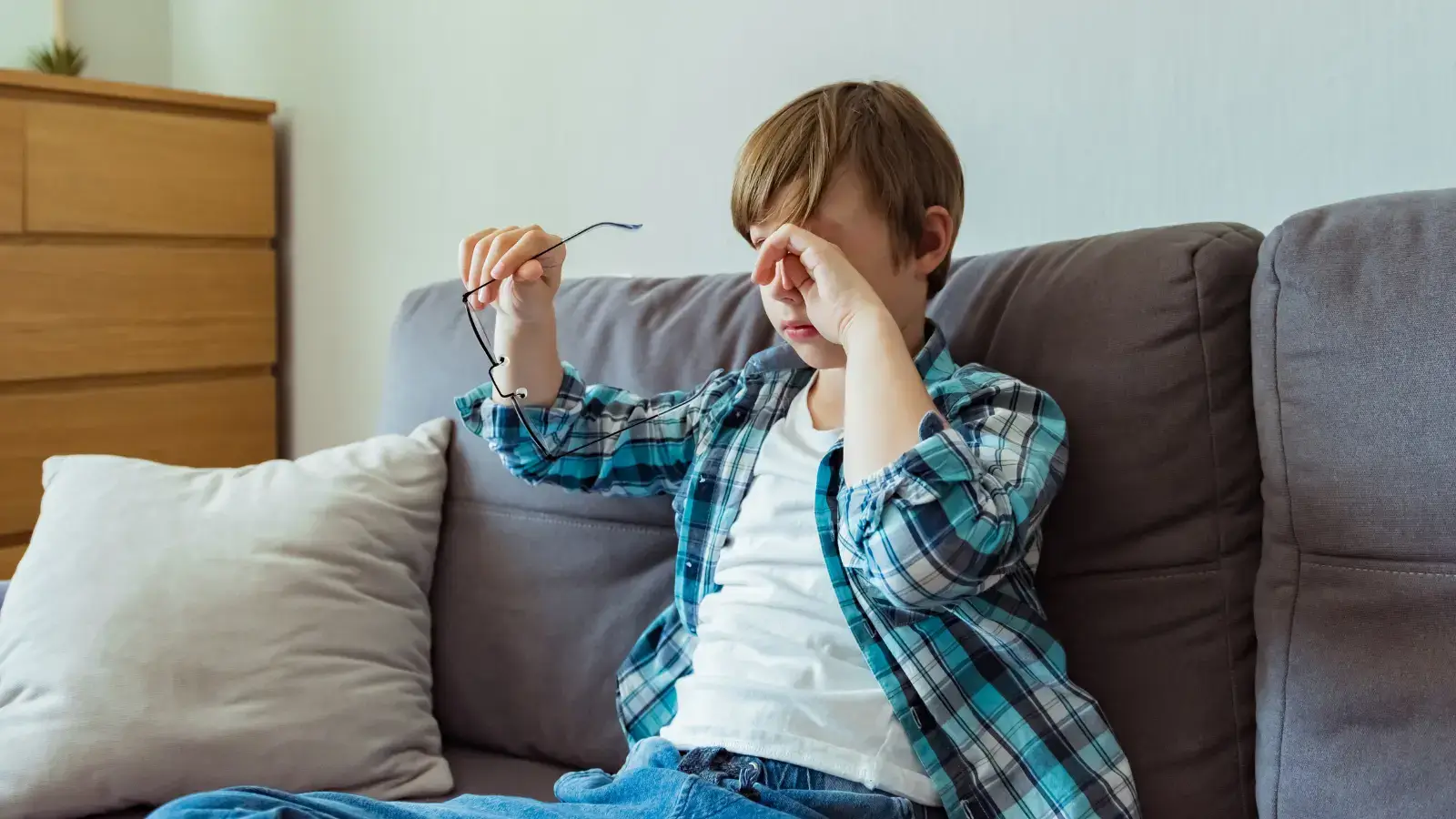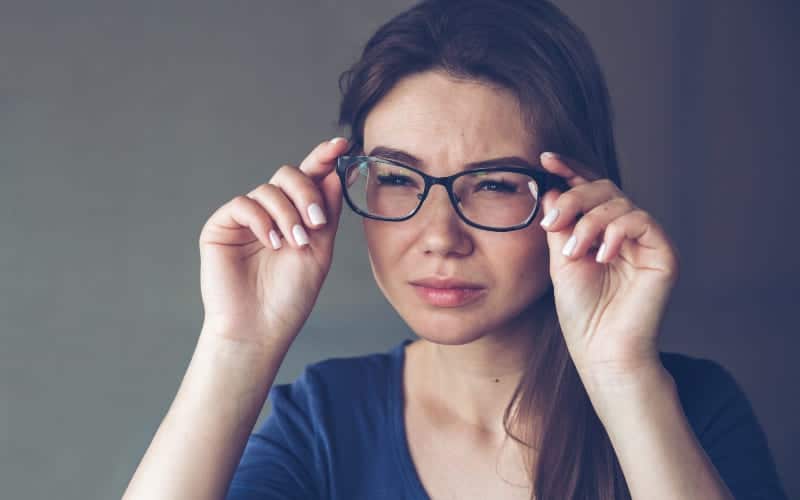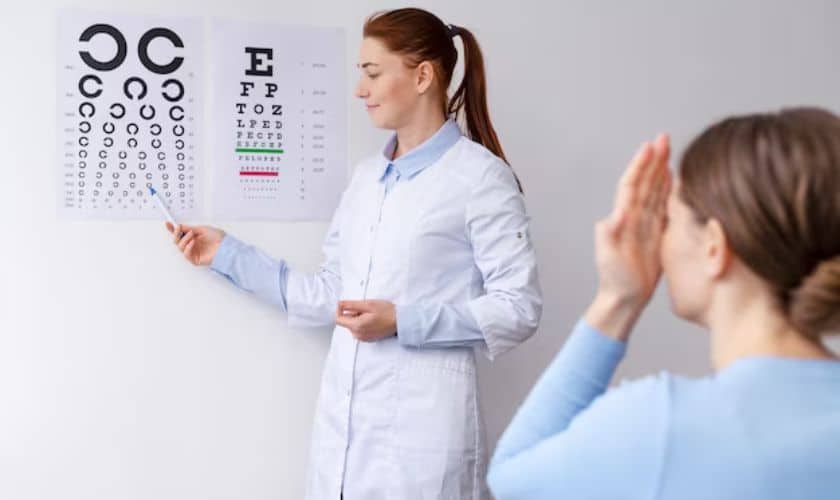Browse Eyewear

Myopia or nearsightedness is a very common vision issue in which you can see objects that are near to you clearly, but objects that are far away appear blurry. It happens when the shape of the eye causes light rays to refract improperly, focusing images in front of your retina rather than on your retina.
Nearsightedness may occur slowly or rapidly, usually worsening during childhood and adolescence. Nearsightedness normally has the tendency to run in families.
A basic eye exam can check whether you are suffering from nearsightedness. You can compensate for the blur with the help of contact lenses, eyeglasses, or refractive surgery.
Symptoms
- Blurry vision when you look at objects that are far away
- You need to partially close or squint your eyelids in order to see clearly
- Headaches because of eyestrain
- You face difficulty in seeing while you drive a vehicle, particularly at night (night myopia)
Nearsightedness is usually first identified during childhood and is usually diagnosed between the early school years through the teens. A kid with nearsightedness may:
- Consistently squint
- Need to sit closer to the movie screen, television, or the front of the classroom
- Seem to be unaware of objects that are at a distant
- Holding objects close to the face
- Excessively blink
- Rub his or her eyes often
Causes
Your eye has actually two parts that focus images- the cornea and the lens.
- People suffer from Myopia when the eyeball becomes too long, relative to the focusing power of the cornea and also the lens of the eye. This allows light rays to focus at a point in front of the retina, instead of directly on its surface.
- Nearsightedness can even be caused by the lens and/or cornea being way too curved for the length of the eyeball. In certain conditions, myopia happens because of a combination of all these factors.
- Myopia usually starts in childhood, and you may have a greater risk if your parents are nearsighted. In maximum conditions, nearsightedness stabilizes in early adulthood but at times it keeps on progressing with age.
When to see a doctor?
If you face serious difficulty in clearly seeing things that are at a distance and that you can’t perform a task as well as you want to, or if the quality of your vision diminishes your enjoyment of activities, then you must visit an eye doctor. The optometrist can easily understand the level of your nearsightedness and suggest to you the treatment options in order to improve your vision.
Even though it may not always be obvious that you’re facing trouble with your vision, the American Academy of Ophthalmology advises you to go for regular eye exams. This is because if you have any issues they can be detected early.
Complications
Nearsightedness is related to a variety of complications from mild to serious, like:
- Reduced quality of life. Untreated nearsightedness can negatively impact your quality of life. You may not be able to do a task as well as you want to. And your restricted vision may be a hindrance to your enjoyment of daily activities.
- Eyestrain. Untreated nearsightedness may cause you to strain or squint your eyes in order to maintain focus. This can result in headaches and also eyestrain.
- Impaired safety. Your own safety and also that of others may be at risk if you have a vision issue. This could be specifically serious if you are driving a vehicle or operating any heavy appliance.
- Financial burden. The expense of corrective lenses, eye examinations, and medical treatments can also add up, particularly with a chronic case like nearsightedness. Vision loss and vision reduction can also affect income potential in certain conditions.
- Other eye issues. Serious nearsightedness puts you at great risk of glaucoma, cataracts, retinal detachment, and myopic maculopathy — damage in the central retinal area. The tissues present in long eyeballs are stretched and thinned, resulting in inflammation, tears, new blood vessels that are weak and bleed easily, and scarring.
Get the Help you need!
You can get in touch with Scottsdale Eyeology if you want to receive the best myopia treatment in Scottsdale, AZ. Our optometrist in Scottsdale will perform a comprehensive eye examination and provide you with quality care for all your vision problems. We are just a call away.



